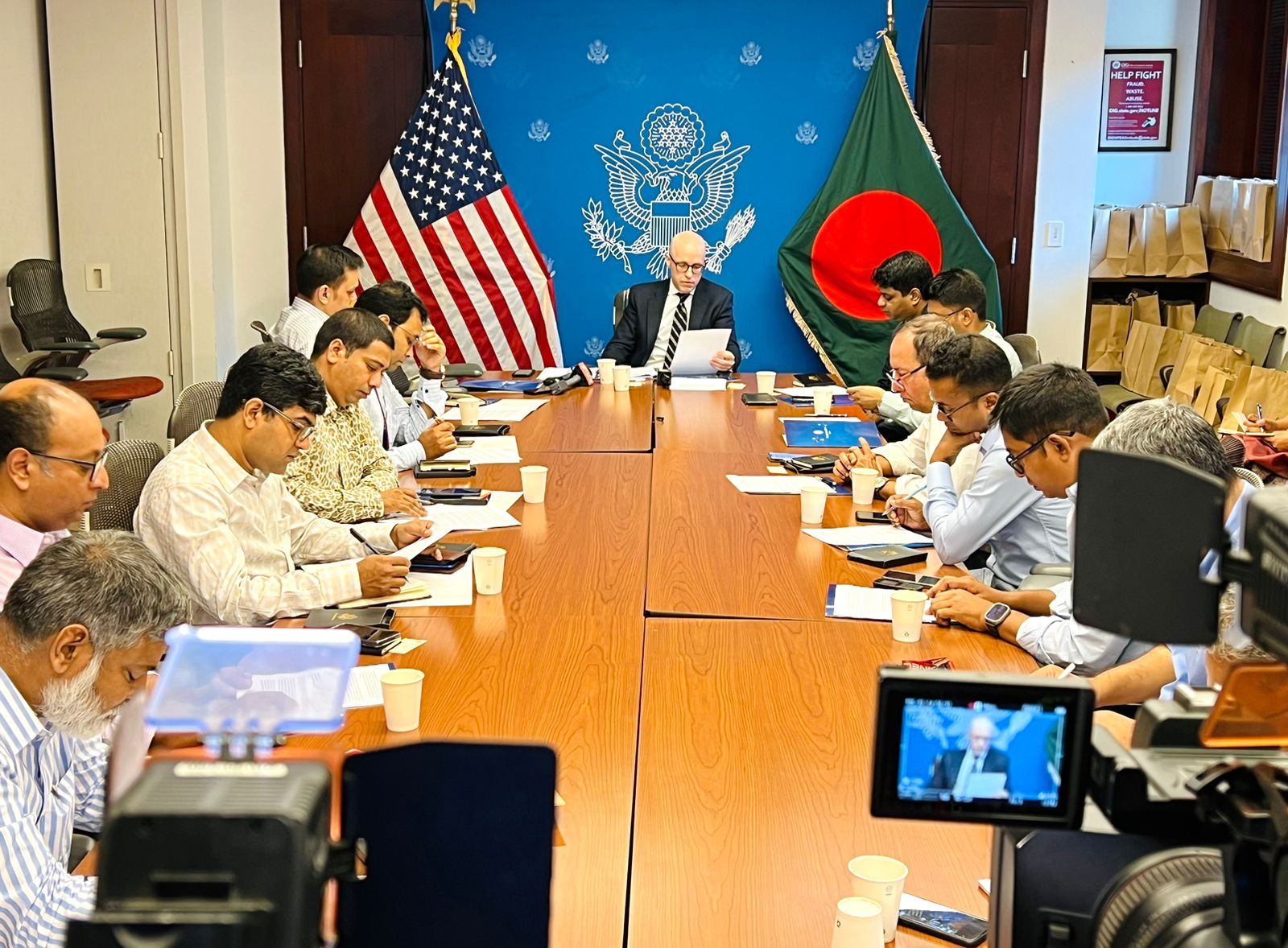News Flash
News Flash

DHAKA, April 25, 2024 (BSS) - Washington doesn't define its bilateral relations with Dhaka by India, China, Russia, or any third country, the US embassy in Dhaka said today.
"The U.S.-Bangladesh relationship is driven by our nations' shared history, common values, and future potential. U.S.-Bangladesh cooperation to promote a free and open Indo-Pacific is just one aspect of our wide-ranging bilateral relationship," said Maxwell Martin, an IPS expert at the US Embassy in media briefing of a selected group of journalist at the embassy here.
Regarding relations in the region, he said, many countries, including the United States, have vital economic or people-to-people ties with China that they want to preserve.
"Every nation will navigate its bilateral relations and interests differently. We do not expect every country to have the same assessment of China as we do," he said, adding that their China staretegy is separated from the Indo Pacific Strategy and has to do with investing, aligning and competing.
Terming the US Indo-Pacific Strategy (IPS) as a vision, Martin said that the IPS is not a military alliance, nor does it seek to become one.
"It is defined by what we stand for, not what we are against. It is not a club one can join, but a vision shared by many nations and peoples," he said.
The official said the Washington vision is not about forcing countries to choose between the US and any other partner rather it is about ensuring that the region is free and open so countries can freely make their own choices.
Welcoming the release of Bangladesh's Indo-Pacific Outlook in April 2023, he said Washington and Dhaka have many common interests and look forward to engaging on them, particularly in building inclusive economic prosperity and environmental and social resilience in the face of 21st century transnational threats.
He said the US wants Bangladesh to become a net security provider in the region in a responsible way.
"Bangladesh has made a lot of progress over the years, and we are proud to be part of that effort. We would hope that the Bangladesh government sees the IPS as an opportunity to cooperate with us and our partners to help address some of Bangladesh's security concerns," said Martin.
He said the Indo-Pacific Strategy is a "positive, progressive vision, comprised of five equally important and interconnected pillars".
Talking about the role of civil society, private sector, and academia for the promotion of a free and open Indo Pacific, he said they see all of these entities and institutions playing an important role.
The IPS expert said they want people to understand what the Indo Pacific Strategy is as sometimes there is confusion about it.
"We want to expand and grow our cooperation and engagement with Bangladesh. We always say we are ready to move as quickly as the government of Bangladesh is, and will continue to have those discussions," he said.
Regarding QUD, he said, it is not a military alliance rather it is a flexible grouping of nations with shared interests in the region.
"QUAD is not something Bangladesh should be afraid of. We understand that Bangladesh balances its relationship with us and others in the region," he said.
Martin said they want to see a region where no country dominates and no country is dominated and this principle applies everywhere.
As the world's most dynamic and fastest-growing region, the Indo-Pacific is a leading priority for US foreign policy and essential to shared global security and prosperity, he said.